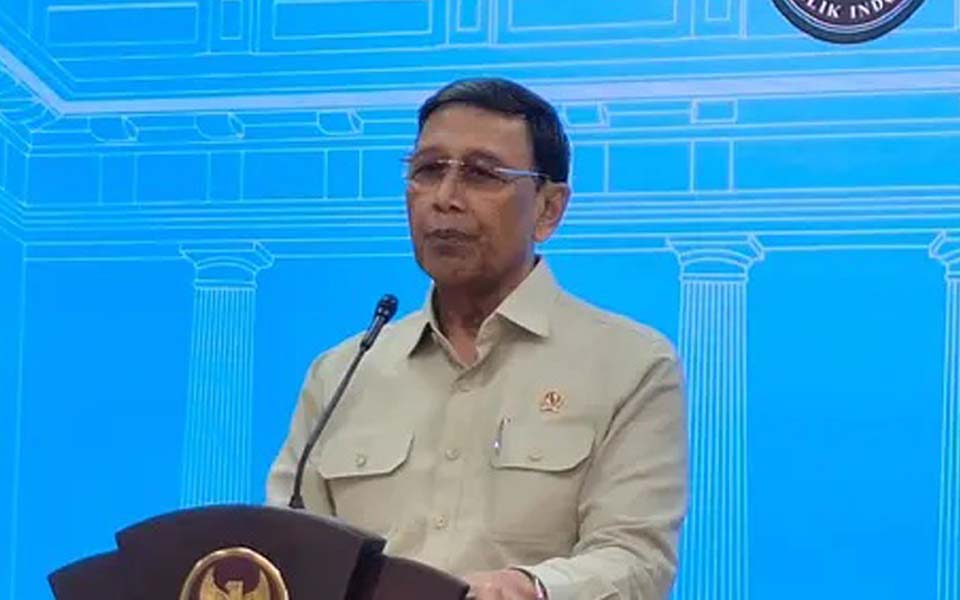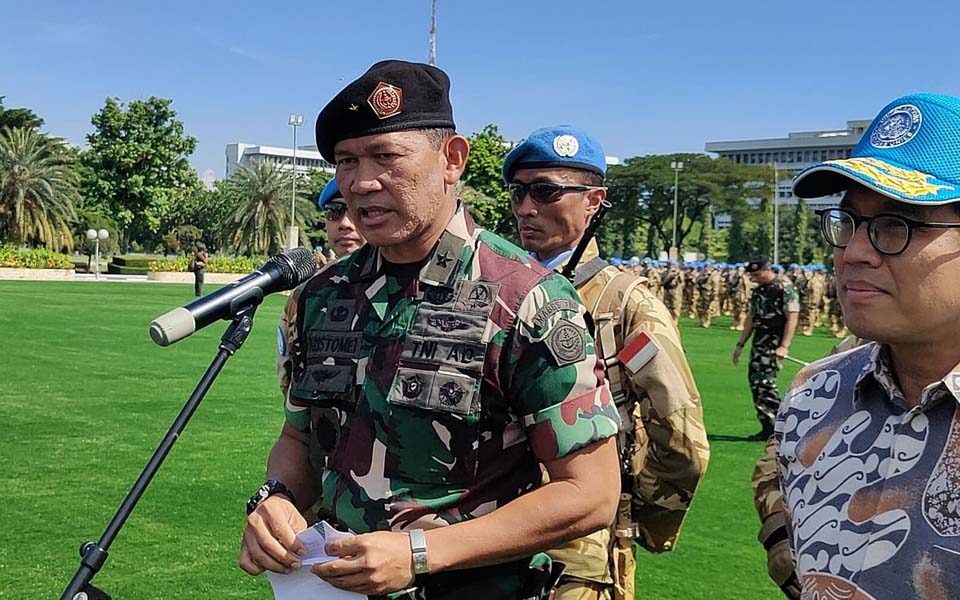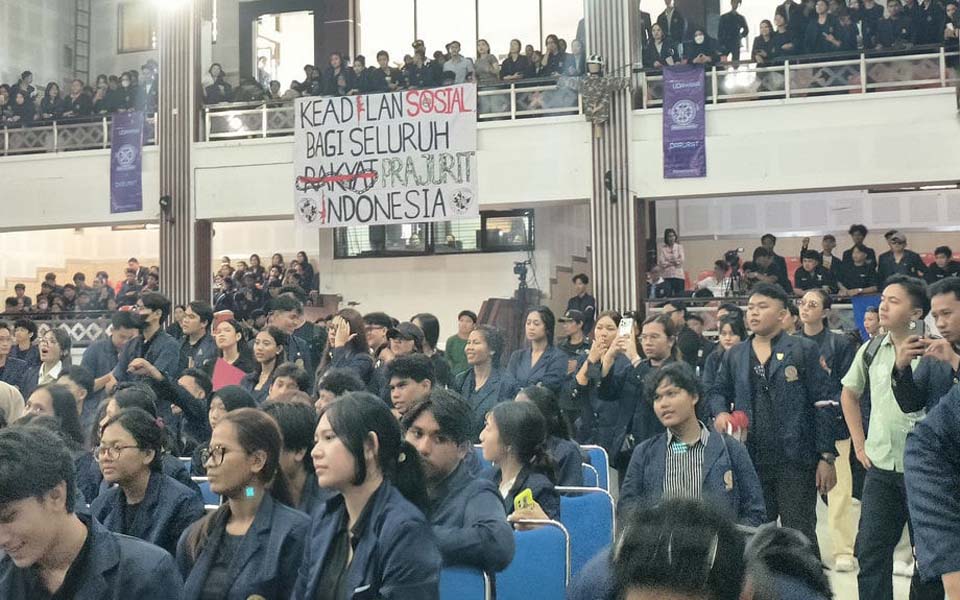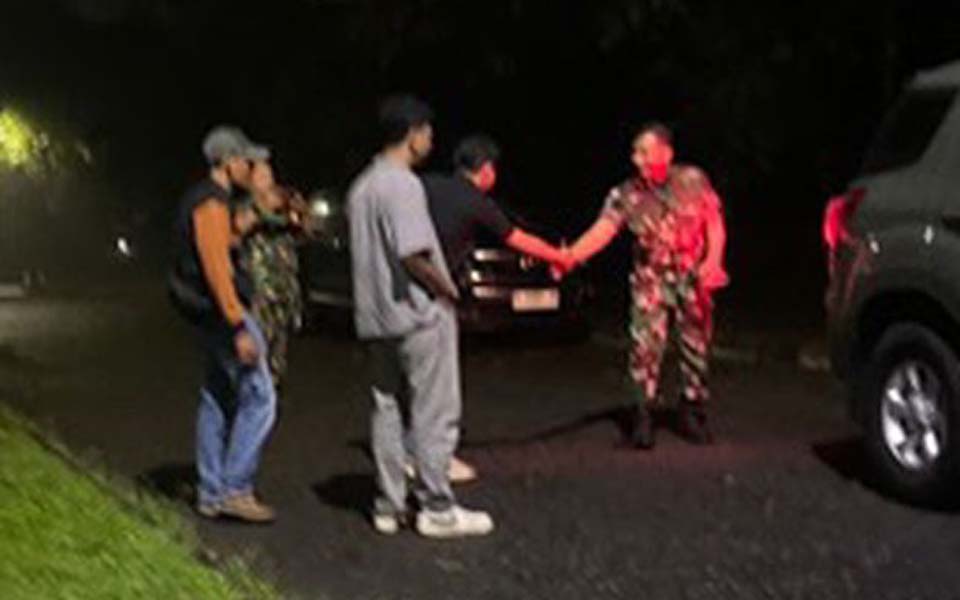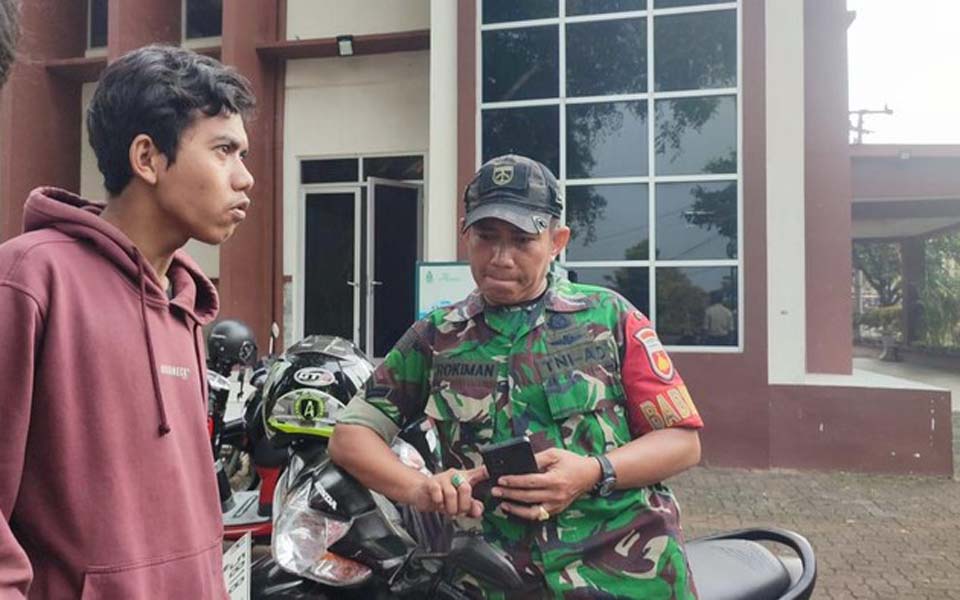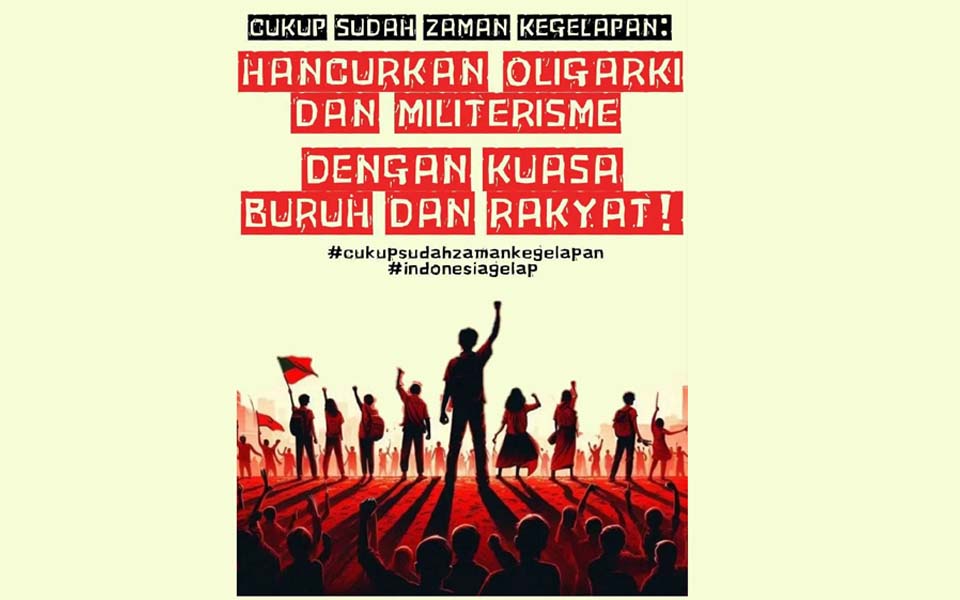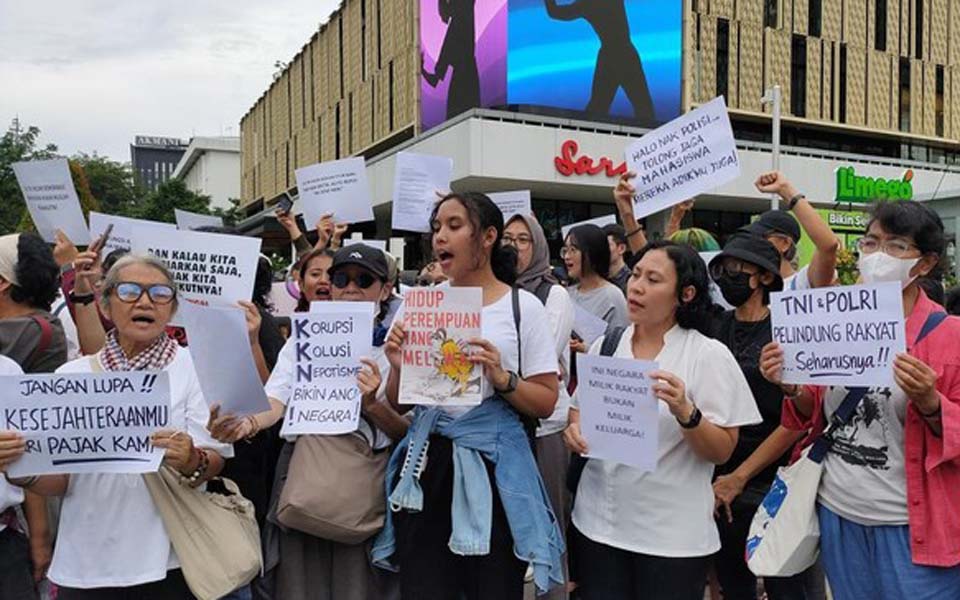Bagus Kurniawan, Yogyakarta – Coinciding with commemorations of the 59th anniversary of the Indonesian Armed Forces (TNI), hundreds of Yogyakarta students from a number of different groups held actions on Tuesday October 5 calling for soldiers’ wages to be increases and rejecting militarism.
The first action was organised by students from the Neo HMI Community (Community of Neo-Islamic Students Association) who held a “long-march” along the length of Jalan Malioboro in Central Yogyakarta to the central post office on Jalan Senopati. The second action meanwhile was held by the Yogyakarta Student Solidarity Forum for Democracy (Forum Solidaritas Mahasiswa untuk Demokrasi, FORSMAD). The action was held at the Gondomanan intersection on Jalan Brigjen Katamso around 300 metres from the Neo-HMI action.
Demonstrators brought a number of posters with messages including “Increase the wages of non-commissioned officers and low-ranking soldiers”, “Abolish the dual function of the TNI”, “Disband Kodam, Korem, Kodim, Koramil and Babinsa”1, “Review the law on the TNI”, “End militaristic acts against civilians” and “End accusations of terrorism against the Islamic community”.
One of the participants in the action, Arief, said in a speech that the wages of soldiers are still extremely low at the moment and that their quality of life is far below that of commissioned officers. “The wages of TNI members which must be increased are the wage of non-commissioned officers and ordinary soldiers, not the wages of commissioned officers”, he said.
He also warned that the election of a president from the military, Susilo Bambang Yudhoyono (SBY), in the second-round of the presidential elections will bring a breath of fresh air to the military but on the other hand will create anxiety within civil society that the military will again support those in power.
“A concrete example is the formation of the National Security Council (DKN) as one of the programs planned for the first 100 days of the president elect. And that [is something] we must reject”, he said.
According to Arief, there is concern that the DKN will be tasked with implementing regulations which will allow the security forces and intelligence bodies to arrest people who are suspected of disturbing national security. In other words, the DKN will be formed as a tool for those in power to get rid of people and groups who oppose the government and the legalisation of military action against civilians.
In a number of speeches demands were made rejected militarism and calling for an immediate end to violence against civilians by the TNI. In addition to this they also called on the People’s Representative Assembly to review the recently enacted law on the TNI and to end plans to establish the DKN by the president elect SBY.
Although there were concerns that these issues would be challenged by another group both anti-military actions proceeded smoothly. The few police officers who were present restricted themselves to ensuring that traffic flowed smoothly. (asy)
Notes:
1. The TNI’s territorial command structure mandates the deployment of military command posts and detachments at all levels of the civil administration: provincial, district, sub- district and village. This structure provides the organisational framework for the TNI to act as a political security force at all levels of society. The five respective commands are: Kodam – Komando Daerah Militer, Regional Military Command; Korem – Komando Resort Militer, Military Command at a level below the residency; Kodim – Komando Distrik Militer, District Military Command; Koramil – Komando Rayon Militer, Sub-District Military Command (Kecamatan) level and; Babinsa – Bintara Pembina Desa, Noncommissioned military officer posted in villages and wards and affiliated with the civilian administration.
[Translated by James Balowski.]






